
Sky’s the limit: Swoop Aero’s mission to reach one billion people by 2030
As the only end-to-end logistics platform on the planet deploying its own cutting-edge drone aircraft, Swoop Aero is leading the way in redefining how to harness the power of our skies to deliver real impact where it’s needed most.
Since launching in 2017, the Fishermans Bend-based drone logistics company has wasted no time in asserting itself as a world leader in its field, operating across six continents and distributing more than 1.4 million items globally to date.
Already providing more than 4.5 million people around the world with access to life-saving medicines, disaster response or critical monitoring and mapping services, by 2025 Swoop Aero hopes to reach 100 million people through its ever-expanding networks.
According to its chief operating officer Jevan Goodhew, “hypergrowth” was the word which best summed up the next five to 10 years at Swoop Aero as it embarks on scaling up its services to reach one billion people by 2030 – proof that this amazing local success story is only just getting warmed up.
Commercial use of unmanned aerial vehicles, commonly known as “drones”, has risen sharply in recent years and, with a projected global market share of around $50 billion by 2030, the sky continues to present exciting opportunities to do things differently.
While many would be familiar with “mini-drones” commonly flown by everyday people for taking pictures or videos from above, much has been made of the technology’s growing commercial logistics capabilities.
Now some 10 years in the making, US tech-giant Amazon recently launched a drone delivery service of its own for consumer goods – Prime Air – which, according to recent reports, is still overcoming significant challenges in rolling out its service at scale.
It’s one example that puts Swoop Aero’s rapid success in this industry into stark context, with the homegrown company founded by former Royal Australian Air Force pilot Eric Peck defying all of its competitors in the space of just five years.
As reported in the Australian Financial Review in June last year, Mr Peck revealed that Swoop Aero had rejected a $100 million takeover bid from a US company servicing the defence sector, insisting that the company saw its purpose as much more than just defence sales as “I’ve been in the military, so I’m not against it, but I wanted to do more”.
This was a message Mr Goodhew strongly reiterated, stating that the whole team saw its mission as “unlocking the potential of the sky”, and providing a “beneficial infrastructure layer for society”.
He said that since its establishment, Swoop Aero had sought to do this by designing its networks to service five main streams – medical transport, monitoring and mapping, maritime logistics, search and rescue and, disaster response.
“We’re a commercial business focused on benefiting society as opposed to participating in some of the problematic use cases for drones,” Mr Goodhew said. “We’ve thought about this holistically, and the way that we really view drone logistics is, essentially, unlocking the potential of the sky.”
“So, we started with medical logistics. It gives us our social licence to operate and it’s a very different story talking to potential customers about the ability to deliver urgent blood transfusions or a life-saving vaccine to someone in a remote African community as opposed to coffee or fast food.”
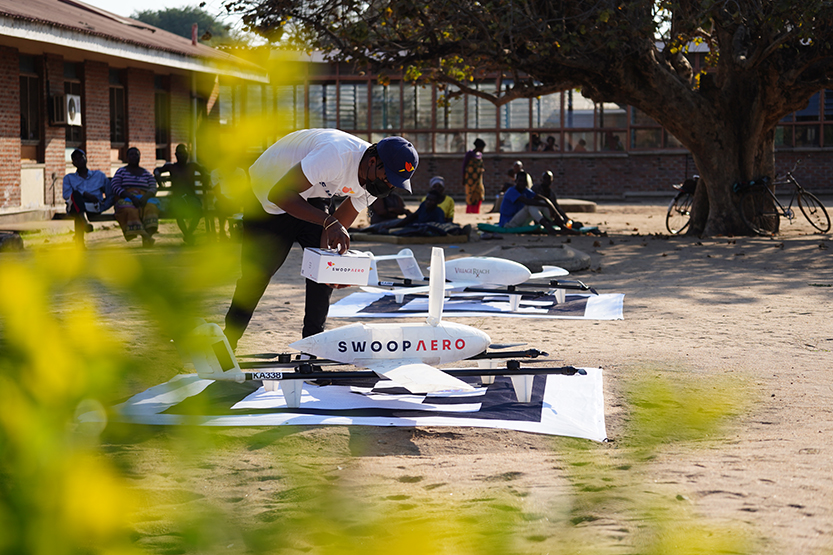
Take Swoop Aero’s work in Malawi, for example. Land-locked in East Africa between Mozambique and Zambia, Malawi is one of the poorest nations on Earth and it’s where Swoop Aero has set up the world’s longest running drone logistics network.
Working alongside a US non-government organisation Village Reach, the company helps transport medical goods from district health centres into remote communities, which Mr Goodhew said ranged from notebooks and rubber gloves to blood transfusions, emergency vaccines and prescription medicines.
As one of Swoop Aero’s “huge success stories”, by September this year the company expects to have national coverage in Malawi, and has recently received a grant from USAid to conduct the world’s first randomised control test for drone logistics from there.
But whether it’s delivering vaccines or COVID-19 testing kits, or conducting disaster and area mapping or conservation and wildlife monitoring, Mr Goodhew said the services were all scalable due to the capacity to deploy multiple drones at a time.
“We’re not deploying one aircraft with one pilot to go and fly 30 flights a day,” he said. “We’re deploying a fleet of drones into a geographic area and the system has been designed to be scalable from day one,” adding that depending on the respective airspace regulations, “the end goal is to have one pilot fly up to 30 aircraft”.
“We think about a fleet of 30 aircraft in a particular area that really unlocks the benefit of using autonomous drones to carry out these logistics tasks. We’re able to bring the costs per flight down significantly compared to traditional modes of transport,” he said.
We’re obviously carbon-free; we’ve got a fully off-grid system if need be and so we can add additional capacity to existing logistics infrastructure without adding any additional carbon, which is pretty important to us.
“Then we also have this ability to transition from a particular mission type like a medical delivery to a disaster response delivery with no hardware changes to the aircraft, aside from loading the mission-specific role equipment. So, we could be flying cargo missions over the streets of Melbourne and immediately transition to doing rooftop inspections post a localised thunderstorm if that’s what our customers need us to do.”
Like the company’s co-founder Eric Peck, Mr Goodhew has a strong background working in defence having started his career as an army officer, before working in banking and completing a Master of Business Administration (MBA).
Having been “fired-up to get involved in a start-up”, he said that he first came across Swoop Aero’s work via LinkedIn and thought, “I can’t believe these guys are Australian, I needed to find out how to meet them”.
After connecting with Mr Peck through a mutual connection, he would eventually join the Swoop Aero team, which today consists of more than 100 people across Australia, New Zealand, Africa and Europe.
While the lived experience of its founder in areas such as aviation and engineering have been central to the company’s success, Mr Goodhew said Eric had made “a deliberate decision to recruit people that are not traditionally aviation people”.
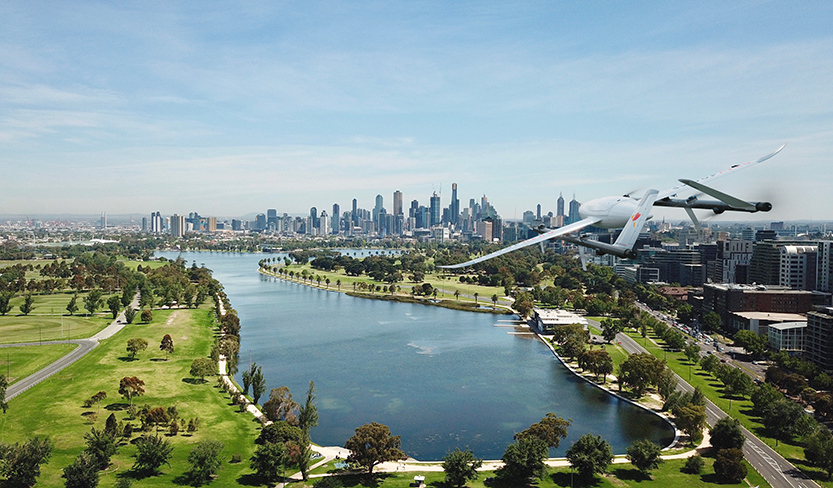
“We really want some fresh thinking and some fresh eyes on how to solve some of these problems and we didn’t want to get caught up in legacy aviation solutions,” he said.
“It’s an international team that is really diverse and everyone is really energised behind our mission.”
And it’s easy to understand why. Not only is Swoop Aero making a significant difference to the lives of people around the world, Mr Goodhew said the company was also “literally at the cutting edge of drone logistics”.
From its 3D printed Kookaburra to its latest fully composite Kite aircrafts, Swoop Aero’s homegrown drones are living examples of “real, Australian, advanced manufacturing” right in the heart of Fishermans Bend.
Considered an “absolute step up in sophistication”, Kite can travel up to 175km carrying 3kg of supplies (or 130km with 5kgs) at “blistering speeds” of up to 200km per hour, complete with secure payload storage and advanced detect-and-avoid technology.
But while it’s easy to talk about the hardware, Mr Goodhew said just as important was the “software stack” that allows each aircraft to operate, from autopiloting and avionics architecture to the remote pilot stations or its logistics dispatch systems.
Swoop Aero is also in the process of rolling out autonomous, architecturally designed docking stations for its fleet, known as an “Aviary”, combining landing infrastructure, charging technology, payload exchange, and user interface.
“Our platform is world leading,” he said. “We have a fully integrated tech stack so there are no external dependencies.”
If you, for instance, wanted to go and start a drone logistics network anywhere in the world all you need is Swoop Aero to go and do that and there’s no other company in the world that can say that.
While its mission, to deliver drone networks that realise the next giant leap in how essential supplies and services are delivered, is one which is truly global with plans for expansion in the United States, and countries across Europe, Africa and Asia, Mr Goodhew said it was also excited about future collaborations at its doorstep in Fishermans Bend.
With the precinct’s proximity to the city, St Kilda and surrounding cafes and venues such as CB Co ideal for its young team, most important was the industrial space providing it with the freedom to keep innovating.
And with the University of Melbourne soon to establish its engineering campus around the corner from its headquarters, Mr Goodhew said direct access to such collaboration was “really, really important for us”.
“We’re able to do demonstrations here and they [students] can come through and see the production line, see the aircraft and actually see real, Australian, advanced manufacturing without having to get in an Uber and set out to some industrial park,” he said.
“It’s easy to underestimate proximity, but realistically, that’s one of the key drawcards for us here in Fishermans Bend.” •

Revitalisation of Alexandra Gardens progresses

Build-to-rent development gets green light in South Melbourne

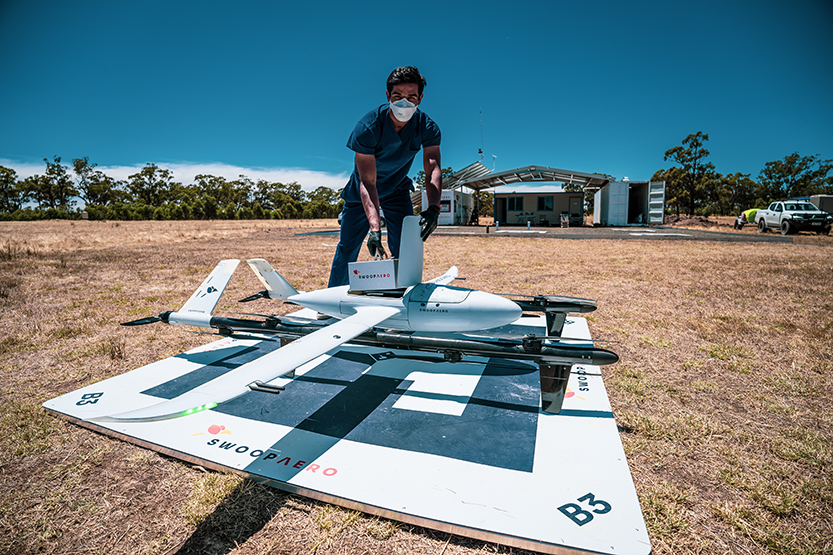
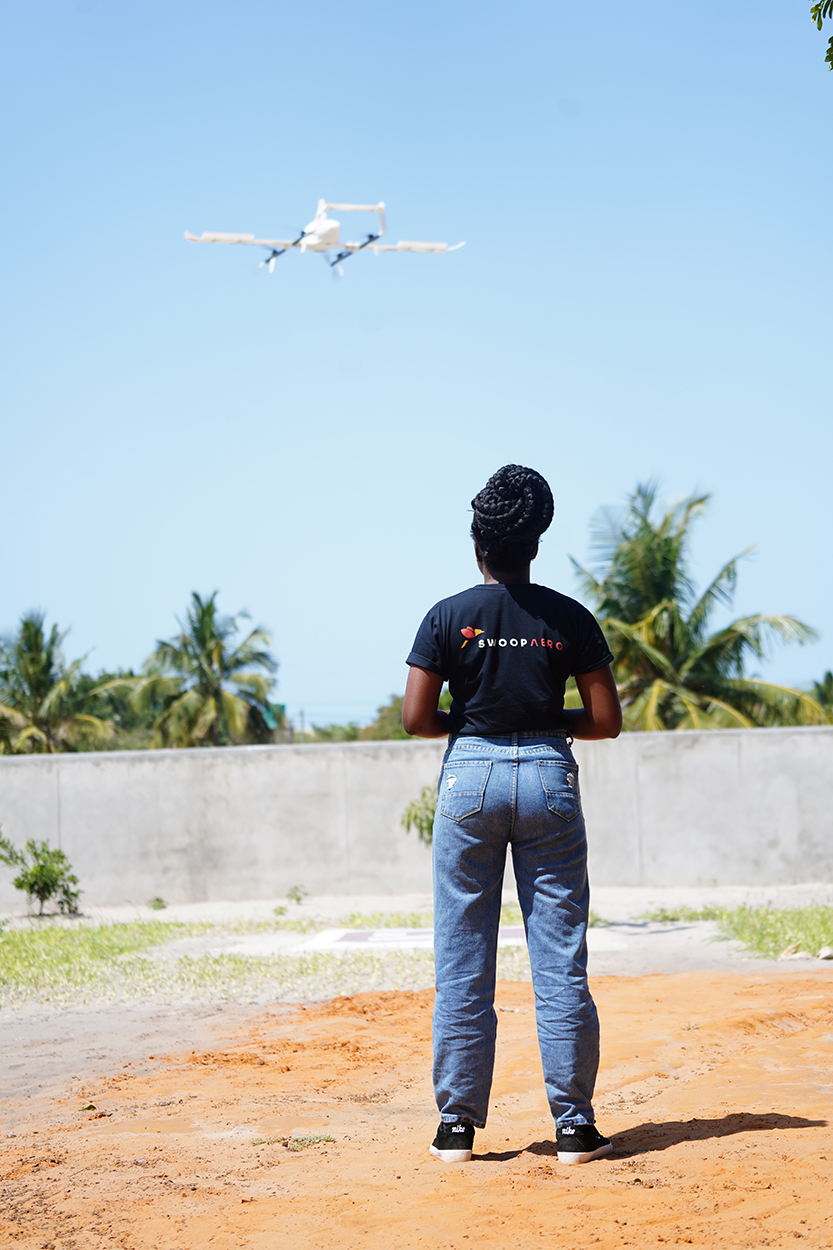
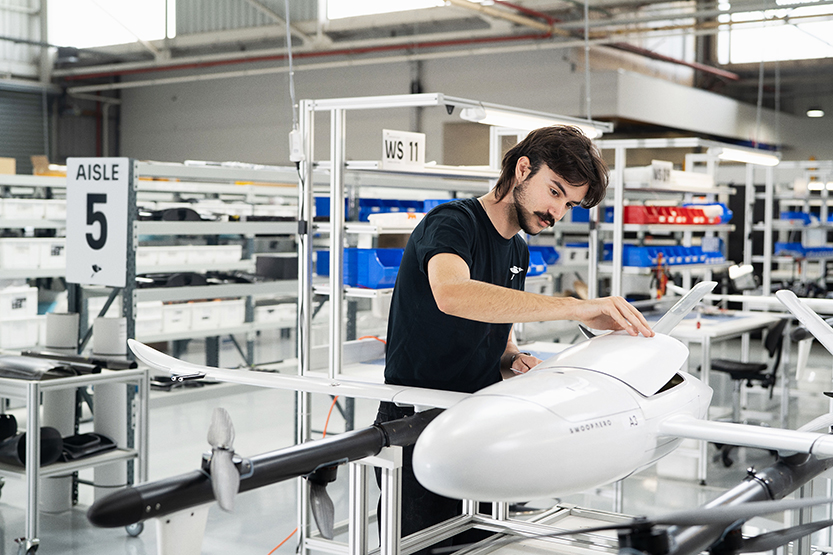
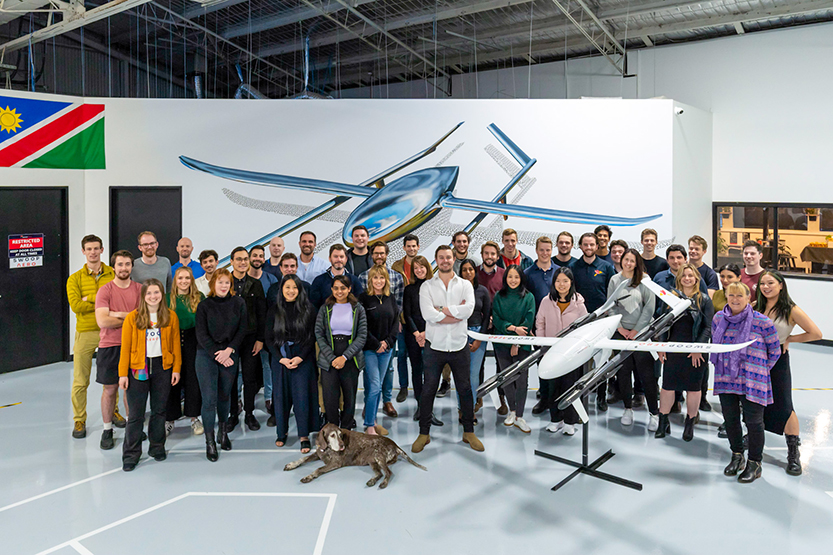




 Download the Latest Edition
Download the Latest Edition